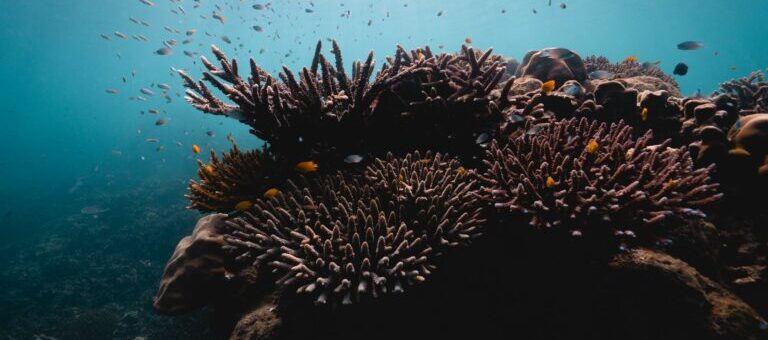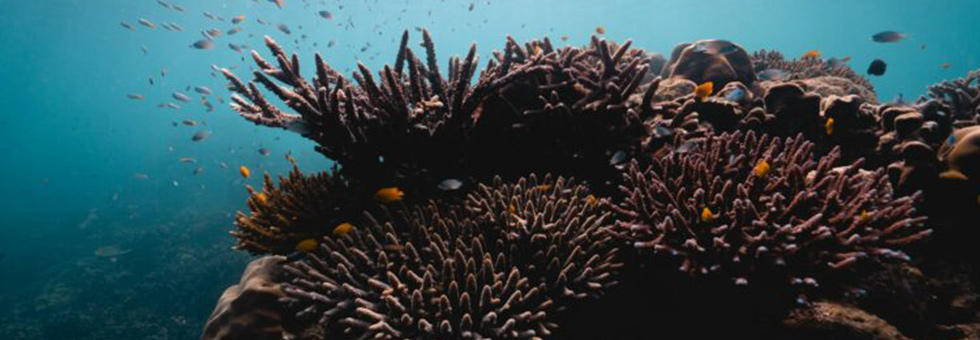Photo: Kogia/Marla Tomorug.
In a recent review in the journal BioEssays , Rutgers researchers described the next steps needed to produce affordable, field-portable diagnostic tests to deliver coral health monitoring tools to local communities.
The latest collaborative effort brought together coral restoration practitioners, which included ICRI member the Coral Restoration Foundation, academic researchers at Rutgers, small business owner, CapitalCorals Research & Restoration, and a foundation program manager at Revive & Restore to address the urgent need for practical coral health diagnostics.

Foto: Kogia /| Marla Tomorug
Coral reefs are experiencing an alarming global decline due to factors such as disease, ocean warming, and local pressures like pollution, eutrophication, and the overfishing of herbivorous fish. To address this crisis, point-of-care monitoring technologies are being developed to allow restorers and local communities to quickly assess coral health and make informed decisions before these ecosystems disappear. These tools aim to respond early to signs of deterioration in order to optimize the management and conservation of marine resources.
Reef-building corals are essential for the survival of tropical ecosystems, as they provide habitat for fish that are fundamental to the diets of island communities and act as natural barriers against storm surges, protecting coastal areas. According to researcher Erin Chille, their well-being is intrinsically linked to that of the human populations that depend on them. Comparing their challenges to those faced by human health—such as stress, disease, or reproduction—the researchers propose focusing efforts on practical solutions that are accessible to the communities that need them most.
One of the key steps identified is the discovery of protein biomarkers that can be easily integrated into existing human medical diagnostic platforms, such as lateral flow tests, which proved their usefulness during the COVID-19 pandemic. Adapting this technology for coral monitoring would allow real-time detection of issues such as disease, stress, or reproductive periods, revolutionizing their management and conservation. This would open the door to faster and more effective protection of these ecosystems, which are vital for biodiversity and the food security of millions of people.
The authors emphasize that developing effective lateral flow tests to monitor coral health requires creating a library of validated proteomic biomarkers. So far, most studies have focused on transcriptomic mRNA markers due to the rapid advancement of genetic sequencing technologies. However, research shows a weak correlation between mRNA and protein levels, making it essential to validate the results at the proteomic level before applying them in field diagnostic tests.
The team at Rutgers University is leading this effort through the development of a lateral flow test prototype that evaluates biomarkers associated with coral bleaching, one of the main causes of mortality in these organisms. This initiative aims not only to measure corals’ stress responses but also to identify potential predictive markers that would allow the implementation of early protection measures. The challenge lies in the vast genetic and taxonomic diversity of corals: there are more than a thousand species of reef builders, which makes it difficult to find biomarkers that perform consistently across species.
To address this diversity, the researchers propose creating a core set of universal metabolic or protein markers, complemented by species-specific panels for particular populations, such as Acropora cervicornis and Acropora palmata from the Caribbean. Portable tools for coral monitoring are estimated to become publicly available within five to ten years, provided there is cooperation among researchers, local communities, businesses, and funding agencies. However, the lack of federal support in the United States could slow progress, highlighting the need for stronger political commitment and funding to preserve marine ecosystems for future generations.
Source:
Press release link: Developing Lateral Flow COVID-19-Type Tests to Monitor Coral Health
Photo ©: Kogia | Marla Tomorug
Copyright © 2025 Official article by Rutgers . All rights reserved.



